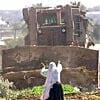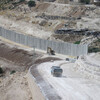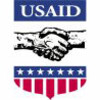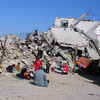
Palestinian teachers union calls for Sari Nusseibeh's dismissal
24 May 2005
A Palestinian teachers union has called for the dismissal of Al-Quds University President Sari Nusseibeh for “normalising ties with Israel” and “serving Israeli propaganda interests”. A statement by the Palestinian Union of University Teachers and Employees (PUUTE), published on the front page of the Ramallah-based daily Al-Ayyam, on Monday accused Nussaibeh of “normalising relations with the Sharon government” despite the Israeli prime minister’s policy of “bullying the Palestinians and stealing their land”. “This constitutes a strong blow to the Palestinian national consensus against normalisation with Israel,” said the statement. Read more about Palestinian teachers union calls for Sari Nusseibeh's dismissal








